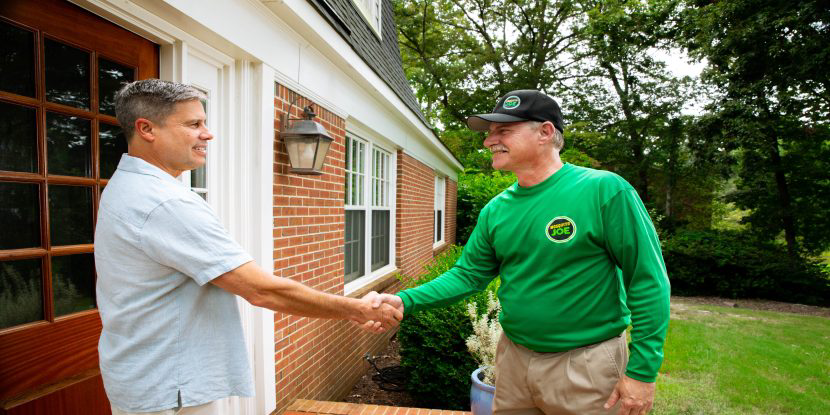
Meet the entomology expert driving innovation at Mosquito Joe.
|
Many of us take enjoying a playful evening with the kids, BBQing with family and friends, or just spending a quiet evening relaxing in the backyard for granted. Until uninvited guests show up to spoil our good time. Nothing throws ice water on outdoor fun faster than mosquitoes, flies, and ticks. Even an annoying relative is more welcome than those buzzing, biting pests who show up and crash the party. However, if you’re among the many thousands who use Mosquito Joe to keep mosquitoes, flies, and ticks from ruining your outdoor activities, you’ve been enjoying the great outdoors without missing a beat.
But have you ever really thought about why Mosquito Joe is so effective at keeping bugs away from your family fun? What’s the science and research that makes Mosquito Joe work so well? To learn more about how Mosquito Joe continues to make the outdoors fun for so many people we spoke with David Price, Entomologist, and the man behind the science and research at Mosquito Joe.
In this first of a series of articles, we interviewed David to learn more about how climate change, the global economy, and other factors are impacting insect populations, migration patterns, habitat, and disease transmission. Also, how research is influencing various treatment options that are designed to control mosquitoes, flies, and ticks in order to reduce the transmission of potentially harmful diseases.
Related Topic: Do Mosquito Repellant Plants Really Work?
A Lifetime Studying Bugs
For those who don’t know, an Entomologist is someone who studies insects and arthropods ( an invertebrate animal having an exoskeleton, a segmented body, and paired jointed appendages ) . And although it’s not everybody’s cup of tea, David developed an interest in bugs at a very early age. This fascination only grew as David got older. After graduation from Purdue University as a Structural/Urban Entomologist —someone who studies insects found in structures and insects of medical importance found within urban environments that potentially carry/transmit various diseases (mosquitoes, ticks, flies, rodents that host insects) — David spent the last 35 years working in the pest control industry.
Today, David helps Mosquito Joe test new treatment products, tracks the number of applications applied throughout various regions, develops operational strategies, trains field personnel, and participates in the Pesticide Environmental Stewardship Program (a program focused on integrated pest management). The PESP considers insect biology, behavior in their environment and looks at available products and how best to apply them with the least risk to people, pests, and the environment.
The Impact of Climate Change
You don’t have to look too hard to find information about how our changing climate is affecting the world around us. Changes in weather patterns, intensity, and rising sea levels have been well documented. A lesser-known effect of climate change is the impact on insect migration patterns and habitats. Since temperature and moisture (relative humidity) are two of the biggest factors related to insect breeding and expanding populations, even a slightly warmer climate means big changes for insect populations.
Recent studies have discovered insects once confined to specific southern regions establishing seasonal habitats much further north. For example, ticks have now migrated as far north as Maine. And with them an increased potential for transmission of Lyme disease to people and pets. Insect samples have also identified new, invasive species of disease-carrying mosquitoes in states like Florida, Texas, and Louisiana . So, what are David and the team at Mosquito Joe doing to address some of these migratory and habitat changes? Find out in our next article: Battling Bugs: How Science and Research Are Influencing Pest Control.
